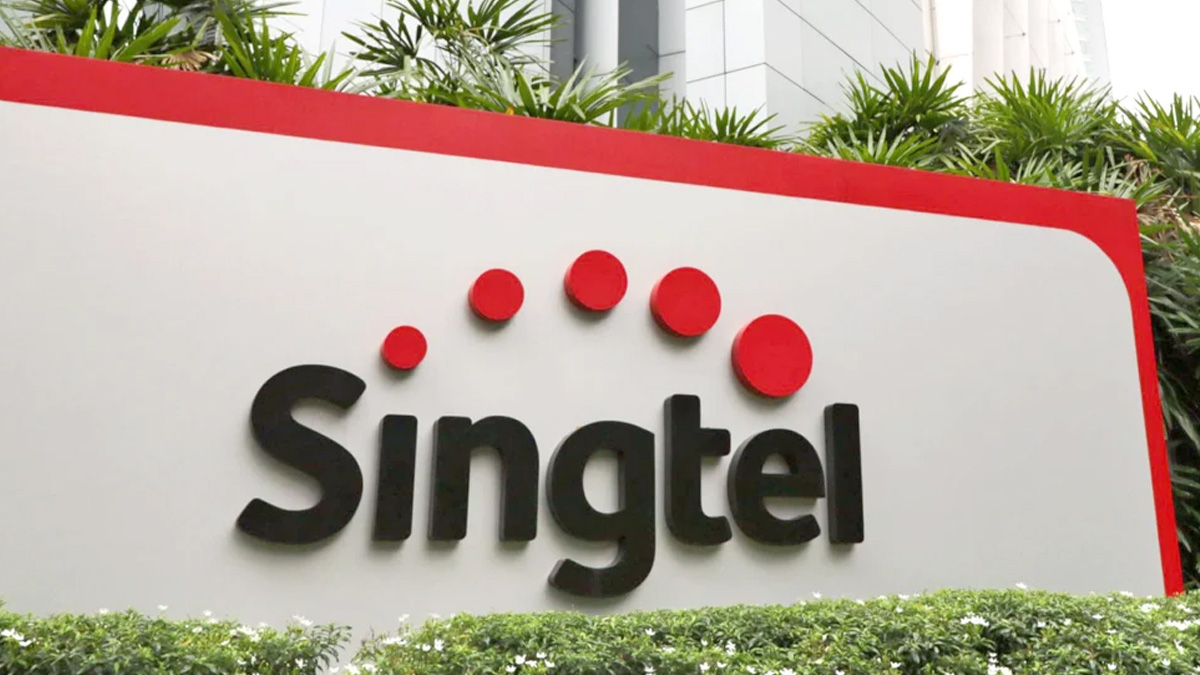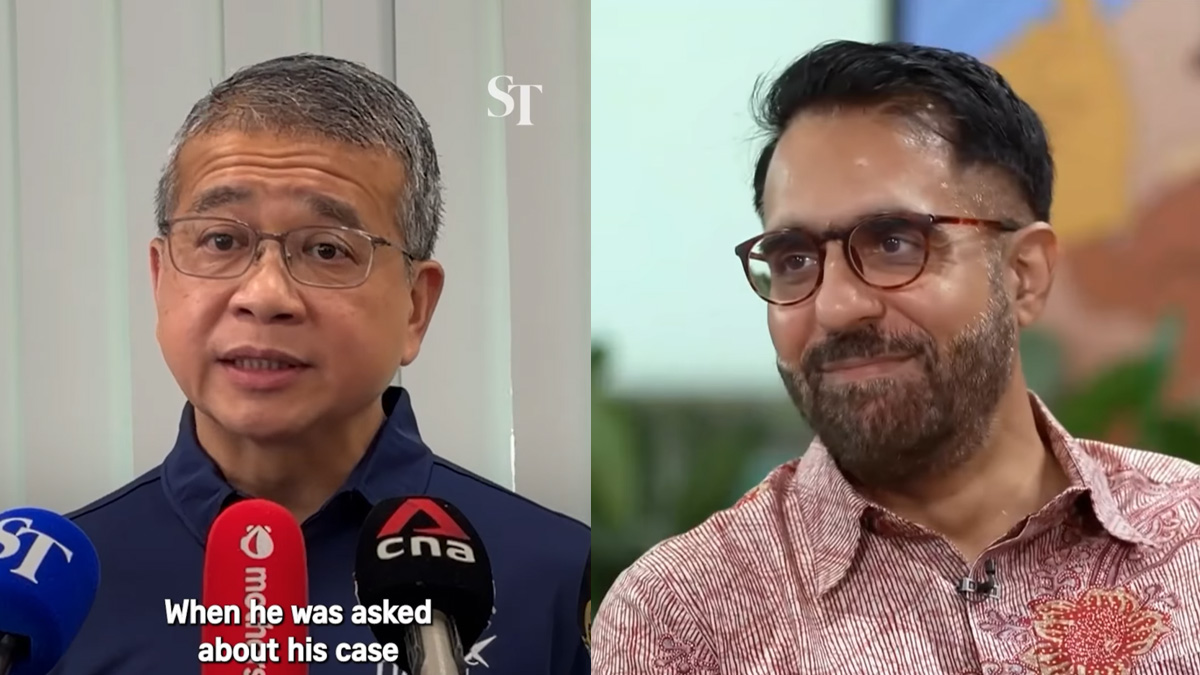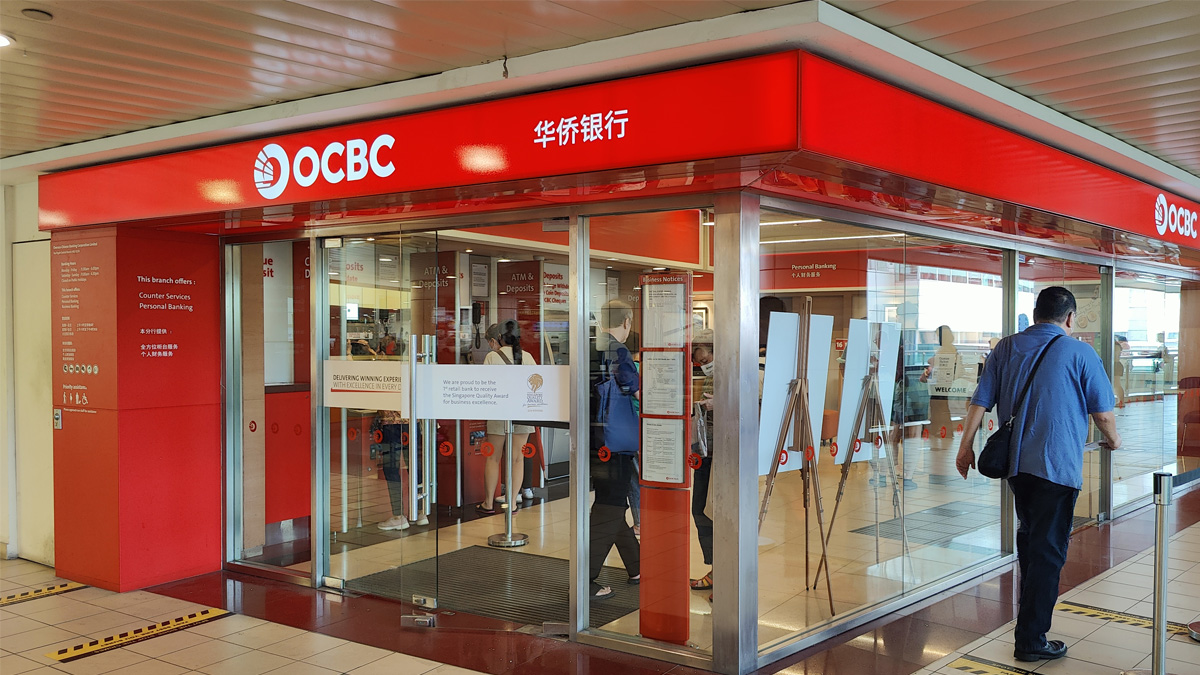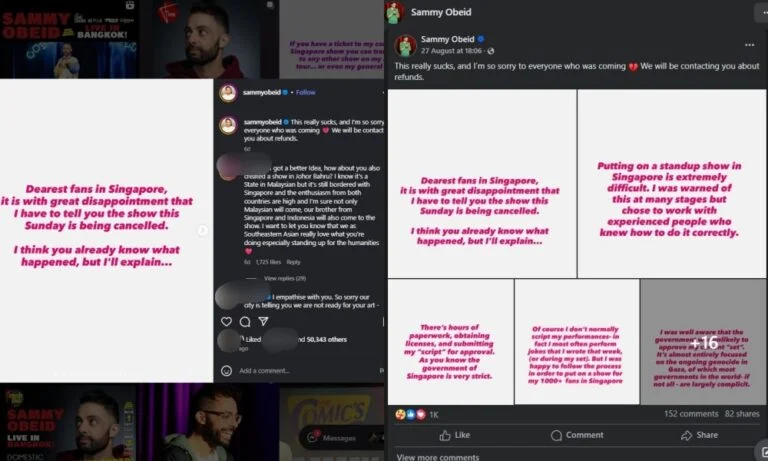Authorities consider POFMA action against comedian Sammy Obeid amid dispute over show cancellation
The Singapore government is considering invoking the Protection from Online Falsehoods and Manipulation Act (POFMA) against Lebanese-Palestinian American comedian Sammy Obeid, after he alleged that censorship led to the cancellation of his shows. Officials insist that the rejection of his licence application was due solely to a late submission.
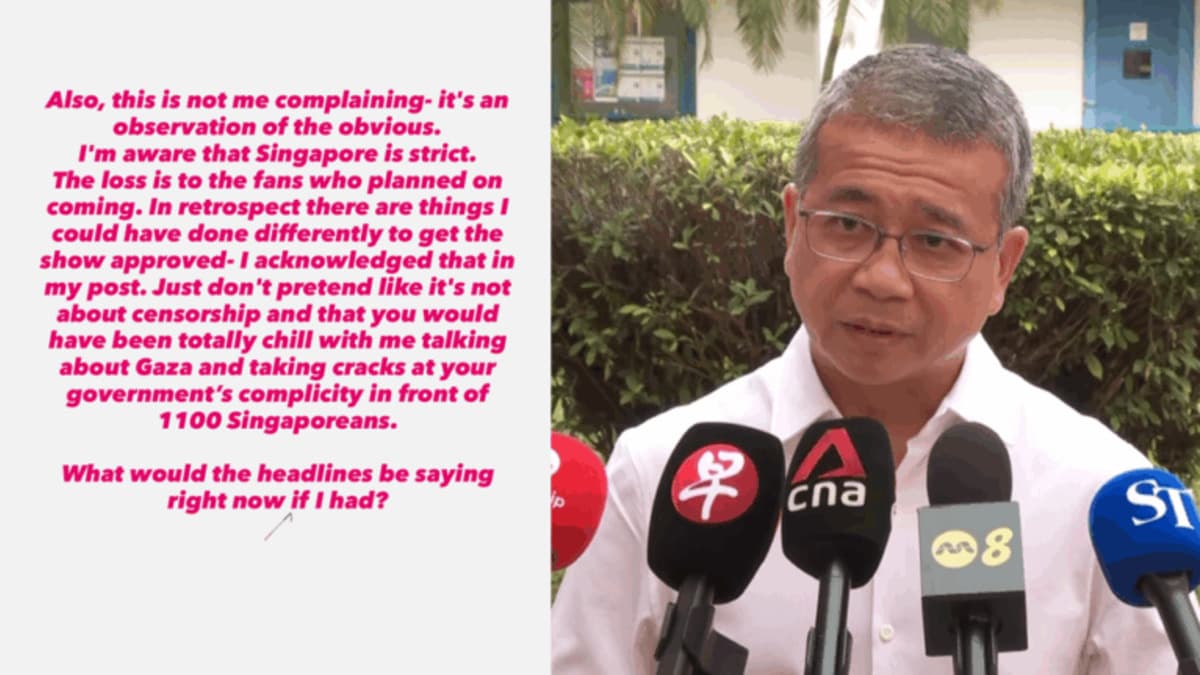
- Law Minister Edwin Tong says IMDA made no edits to Sammy Obeid’s script and denied any censorship.
- Obeid shared an audio clip alleging he was told to remove material related to Palestine and Israel.
- Authorities say the application for the 31 August show was rejected solely for being submitted too late.
SINGAPORE — Authorities in Singapore are weighing possible action under the Protection from Online Falsehoods and Manipulation Act (POFMA) against comedian Sammy Obeid, following a public dispute over the cancellation of his stand-up shows.
The controversy centres on conflicting accounts between Obeid and the Infocomm Media Development Authority (IMDA) regarding the reasons behind the show’s cancellation and whether censorship played any role.
Government denies censorship
Law and Home Affairs Minister Edwin Tong said on 31 August that Obeid’s claims were “completely fictional” and that IMDA had made no edits or requests for changes to his performance script.
“There was not a single edit requested by IMDA,” Tong said at an event in Siglap South Community Centre. “In fact, there were no communications with Mr Obeid on the script, and his own agent has confirmed this.”
Tong explained that the only reason for the rejection of Obeid’s performance licence was late submission. IMDA requires at least 40 working days’ advance notice, but Obeid’s application was submitted on 15 August for a show scheduled on 31 August—around 30 days late.
Obeid disputes official account
In response, Obeid posted a video on Instagram and Facebook on 31 August, sharing an audio clip of an unidentified man instructing him to remove “anything that has to do with Palestine and Israel,” mentioning a 3pm deadline for edits.
In accompanying text slides, Obeid said his intention was not to attack the Singapore government but to respond to claims that he fabricated his story. “This post is just to respond to the allegations that I lied… That would be Singa-poor judgement,” he wrote.
He also accused authorities of exerting censorship pressure: “Just don’t pretend like it’s not about censorship… and that you would have been totally chill with me talking about Gaza and taking cracks at your government’s complicity in front of 1,100 Singaporeans.”
The comedian did not name the individual heard in the recording and clarified that the voice was not his own.
IMDA provides detailed timeline
IMDA released a statement on 31 August outlining a chronology of events:
-
8 July: Obeid’s assistant contacted IMDA to inquire about the licensing process.
-
15 August (11:57pm): A local representative submitted a formal Arts Entertainment Licence (AEL) application.
-
19 August: IMDA rejected the application, citing lateness.
-
20 August: An appeal was filed.
-
25 August: The appeal was rejected.
IMDA stated that the local agent—whose identity has not been publicly confirmed—told the agency she had reminded Obeid multiple times that the application was late and was unaware of his public claims about censorship.
The authority added that the agent’s correspondence and records showed no script edits were requested at any point.
Questions over the script and licensing process
Typically, IMDA’s licensing process for stand-up comedy shows requires only a show synopsis and rehearsal video, as such performances are categorised as unscripted arts entertainment.
However, Obeid claimed he was instructed to submit a full script and subsequently asked to remove references to Palestine, Israel, and audience interaction. He said he provided a 10-page revised script that was heavily redacted but was still told to make further cuts.
IMDA has not commented on why a full script was submitted or who allegedly made those requests.
Obeid also pointed out that other performers had successfully obtained approvals for late submissions in the past, arguing that his case was handled inconsistently. “Even if the issue was just that my submission was ‘late,’ then why was I asked to make revisions before it was ultimately rejected?” he asked.
Show cancellations and public reaction
Obeid had scheduled two performances at Victoria Theatre on 31 August, with more than 1,000 tickets sold. The Singapore show was part of a regional tour covering Indonesia, Malaysia, Thailand, India, Hong Kong, Japan, and South Korea.
Following the cancellation, ticket holders were offered exchanges for other tour dates.
The dispute has sparked widespread discussion online, with supporters of Obeid claiming the case illustrates Singapore’s tight control over artistic expression, while others argue that the comedian misrepresented routine administrative procedures as censorship.
Potential legal consequences
If a POFMA Correction Direction is issued, Obeid would be required to append official correction notices to his posts on Facebook, Instagram, and X (formerly Twitter), linking to the government’s clarification on the Factually website.
Failure to comply could constitute an offence, punishable by a fine of up to S$20,000, imprisonment for up to 12 months, or both.
As of 1 September, Obeid’s posts remain live, and he has not issued any further public responses.


